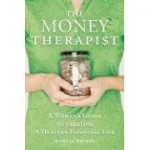In the face of dramatic economic dislocation, the bogyman de jour, and unrelenting change, how will I divine how to proceed, whether individually or collectively? At what level of collaboration should I be concerned anyway?
A new magazine called “Yes!” has sprung up in the Pacific Northwest whose focus has great relevance to this question. Its mission is to support you and other people worldwide in building a just, sustainable, and compassionate world. The new summer edition is completely dedicated to articles about “The New Economy” which address the opening question in this blog posting head-on.
One article, “Age-Old Wisdom for the New Economy” is an interview with Rebecca Adamson, a distinguished Native American leader. She shares indigenous people’s age-old knowledge that drives to the heart of the matter of who to be with regard to the entire swirl around us. Following are a few of the many highlights in that article.
“An indigenous system is based on prosperity, creation, kinship, and a sense of enough-ness. It is about sharing.” She contrasts that with our recent economic gain focused society where “individual property rights are treated as exclusive.” She observes that a background of scarcity, or the notion that there’s not enough, drives this focus - we’re going to run out of _____ (fill in the blank for yourself).
We find scarcity running rampant with many of our clients. There’s not enough money, not enough time, not enough good people, not enough responsibility, not enough you name it. We also see many people pointing fingers at others for trying to get “theirs,” - Wall St. bankers going after huge pay and bonuses, for example - without realizing that it is the very paradigm in which our economic lives have been built that is at the root of the problem. You and I are not immune to, or separate from, that paradigm. It has been said that fish don’t know they are in water.
We invite you to examine where, in your own life, scarcity is running the show. What are the consequences of that belief, both for you and for those around you? What is it costing to allow that way of being to continue?
Rebecca offers an antidote that we invite you to try on for a period of time long enough for you to observe its effects. “Maintain the stance of abundance through tough times and through good times by having a spiritual base and good values - by caring about something other than yourself.” She continues, “Abundance comes not from stuff. In fact, stuff is an indication of non-abundance. Abundance is in the sacred: it’s in the connection of love. We find abundance through hard times when we find each other.”
The way we express her perspective is that abundance is a place to come from, a context to generate for your life and the lives of those around you. It takes intentional intervention on your part into the everyday noise of talking heads, threat levels, crises, and very real changes to the way things have worked or been done in the past. Generate it and then generate it again and again. Notice how your relationship with abundance/scarcity shifts. Discover how what you do and how you do it takes on new direction and meaning.

 As many have written, (including us), these are extraordinary times. The thing is, they are likely more extraordinary than most of us realize. During today's
As many have written, (including us), these are extraordinary times. The thing is, they are likely more extraordinary than most of us realize. During today's  We can go back through the history of the earth by drilling into and examining the ice cores in Antarctica. In doing this, scientists have discovered that these changes in earth cycles are really intense and they are also brief, so the transition we are currently experiencing is unlikely to go on for generation after generation. In fact, it will likely be only one generation. So we as a civilization must respond now. The choices each of us are making today will determine our collective future.
We can go back through the history of the earth by drilling into and examining the ice cores in Antarctica. In doing this, scientists have discovered that these changes in earth cycles are really intense and they are also brief, so the transition we are currently experiencing is unlikely to go on for generation after generation. In fact, it will likely be only one generation. So we as a civilization must respond now. The choices each of us are making today will determine our collective future. If you are not a believer in reviewing ancient history, how about the results of some recent scientific studies? Between the years 1998 and 2000, 400 studies were designed to identify the optimum amount of violent competition in a species. They looked at numerous varieties of species and the findings were consistent - the optimal amount of competition is "zero." They found that cooperation among species is what insures their survival. So the only way we can make successfully make this transition is to examine and rid ourselves of our notions of 'Darwinian competition' and learn to cooperate and help each other. This means at every level and on a global scale - not just how do I cooperate with my next door neighbors and others in business? But how do nations cooperate with other nations?
If you are not a believer in reviewing ancient history, how about the results of some recent scientific studies? Between the years 1998 and 2000, 400 studies were designed to identify the optimum amount of violent competition in a species. They looked at numerous varieties of species and the findings were consistent - the optimal amount of competition is "zero." They found that cooperation among species is what insures their survival. So the only way we can make successfully make this transition is to examine and rid ourselves of our notions of 'Darwinian competition' and learn to cooperate and help each other. This means at every level and on a global scale - not just how do I cooperate with my next door neighbors and others in business? But how do nations cooperate with other nations? So ask yourself - who have you helped today? Did you come up with a great cooperative joint venture with another company that will create a "win win" for both businesses? Did you help a colleague get an important project approved or completed? Did you make time to help a neighbor, a friend, or someone in one of your communities? Did you create just a little peace by letting someone get on the freeway more easily or make a safe lane change? It will take a cumulative effect of many cooperative acts great and small, but we can do this if we do it together from a mindset of cooperation instead of a mindset of competition.
So ask yourself - who have you helped today? Did you come up with a great cooperative joint venture with another company that will create a "win win" for both businesses? Did you help a colleague get an important project approved or completed? Did you make time to help a neighbor, a friend, or someone in one of your communities? Did you create just a little peace by letting someone get on the freeway more easily or make a safe lane change? It will take a cumulative effect of many cooperative acts great and small, but we can do this if we do it together from a mindset of cooperation instead of a mindset of competition. Blind Adventurer," give an hour and a half presentation on his experiences, motivations, lessons learned, and extraordinary worldview, was just that. Erik has reached the summit of the seven most challenging mountains in the world, including Everest, and successfully returned.
Erik's views are particularly applicable in navigating the
Blind Adventurer," give an hour and a half presentation on his experiences, motivations, lessons learned, and extraordinary worldview, was just that. Erik has reached the summit of the seven most challenging mountains in the world, including Everest, and successfully returned.
Erik's views are particularly applicable in navigating the  venues in which we find ourselves, summits that express the essence of who we really are.
venues in which we find ourselves, summits that express the essence of who we really are. t part of leadership is how we pass it on to others."
t part of leadership is how we pass it on to others." dynamic. It's important to re-evaluate your answer to this very personal and very important question on a regular and periodic basis.
dynamic. It's important to re-evaluate your answer to this very personal and very important question on a regular and periodic basis.
 paradigm of leadership for a very long time. It is all about having an authoritative leader, who knows most, (if not all), the answers and loyal troops who follow this leader. Hallmarks of this style include motivation through authority and fear. It also encourages the troops to follow the rules and policies and “fall in line,” versus being creative and innovative. To a large extent this style creates dependency of the troops on the leaders, and rewards status quo. It is not a particularly efficient model of operation.
So what does ‘leadership’ mean now? Clearly that is a complicated question. At 2130, we believe to understand that question you need to start with
"who are leaders now?" How do you define them? From our perspective, we believe that everyone can and should be a leader -- that leadership is not dependent on having a particular job title or rank in an organization. We’ll let
paradigm of leadership for a very long time. It is all about having an authoritative leader, who knows most, (if not all), the answers and loyal troops who follow this leader. Hallmarks of this style include motivation through authority and fear. It also encourages the troops to follow the rules and policies and “fall in line,” versus being creative and innovative. To a large extent this style creates dependency of the troops on the leaders, and rewards status quo. It is not a particularly efficient model of operation.
So what does ‘leadership’ mean now? Clearly that is a complicated question. At 2130, we believe to understand that question you need to start with
"who are leaders now?" How do you define them? From our perspective, we believe that everyone can and should be a leader -- that leadership is not dependent on having a particular job title or rank in an organization. We’ll let  So much of the fear that is present right now is related to money. Everything from the state of the dollar and the global economy, to our personal credit cards and mortgages seems to be in turmoil. An important key to leading your life is leading your finances -- both business and personal. An important key to leadership is feeling empowered. With everything going on, where are you going to feel empowered about money? In the spirit of financial empowerment, we want to be sure you know about
So much of the fear that is present right now is related to money. Everything from the state of the dollar and the global economy, to our personal credit cards and mortgages seems to be in turmoil. An important key to leading your life is leading your finances -- both business and personal. An important key to leadership is feeling empowered. With everything going on, where are you going to feel empowered about money? In the spirit of financial empowerment, we want to be sure you know about 
 If you, a family member, a friend or colleague could use some financial confidence boosting and some solid information, check out Marcia's work.
If you, a family member, a friend or colleague could use some financial confidence boosting and some solid information, check out Marcia's work.
 era and is now rapidly being displaced. In Mike's description, entitlement means “I deserve this job, and to be taken care of by my employer.” On a broader level it connects to expectations about "what I should receive" as a result of position, hard work, loyalty, birth rite, etc. To us, this shift is at the heart of the fear that dominates our lives and airwaves in the USA. Whether from loss of a job, sharply reduced financial reserves, loss of perceived political power, or safety from foreign threats, the sense of “I have a right to this” is being significantly threatened.
era and is now rapidly being displaced. In Mike's description, entitlement means “I deserve this job, and to be taken care of by my employer.” On a broader level it connects to expectations about "what I should receive" as a result of position, hard work, loyalty, birth rite, etc. To us, this shift is at the heart of the fear that dominates our lives and airwaves in the USA. Whether from loss of a job, sharply reduced financial reserves, loss of perceived political power, or safety from foreign threats, the sense of “I have a right to this” is being significantly threatened. 
 In the spirit of the Lead Your Business, Lead Your Life blog we are writing about this book because it is very empowering. And it's an important read and guidebook, not just for those who dream of escaping and branching out on their own in business. It's also an important read for business owners, both new and advanced. Here's why:
In the spirit of the Lead Your Business, Lead Your Life blog we are writing about this book because it is very empowering. And it's an important read and guidebook, not just for those who dream of escaping and branching out on their own in business. It's also an important read for business owners, both new and advanced. Here's why: Letter" to corporate leaders that vents the frustration that can be felt by employees about so many facets of business life. If you read the book using the lens of insight into, and a reminder of, what it can be like to be an employee - the challenges, and the daydreams - it could be a very valuable read. Of course, not all employees are frustrated and many are happy to be working for others. But, if you are a business owner or top executive, this book can be a powerful reminder of the challenges of working for someone else, and the fierce desire employees can have for more creativity, autonomy and input. It may spark you to side-step or prevent traps that are just waiting to make your dream business into a living Dilbert cartoon.
Letter" to corporate leaders that vents the frustration that can be felt by employees about so many facets of business life. If you read the book using the lens of insight into, and a reminder of, what it can be like to be an employee - the challenges, and the daydreams - it could be a very valuable read. Of course, not all employees are frustrated and many are happy to be working for others. But, if you are a business owner or top executive, this book can be a powerful reminder of the challenges of working for someone else, and the fierce desire employees can have for more creativity, autonomy and input. It may spark you to side-step or prevent traps that are just waiting to make your dream business into a living Dilbert cartoon.